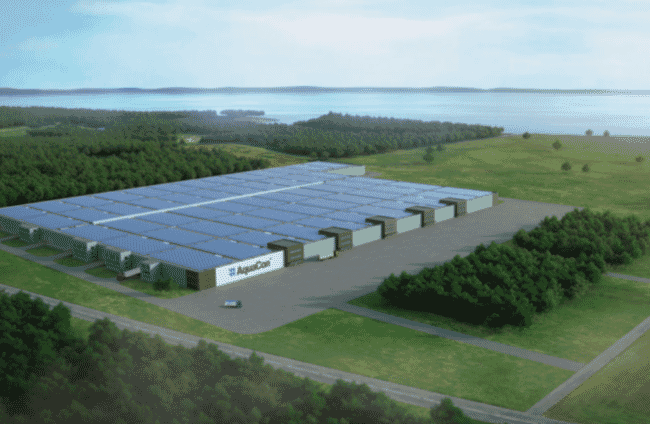
They aim to expand in phases, with a 50,000 tonne target within the first six years of breaking ground © AquaCon
CBF believes this permit will not adequately protect water quality, underwater grasses and spawning areas for striped bass, perch and other key species in the Susquehanna River and Chesapeake Bay.
CBF's petition for judicial review, filed in Circuit Court for Cecil County, challenges Maryland Department of the Environment’s (MDE) permit for purge water discharge. Purge water is generated when fish are held for several days prior to harvest to rid them of an off-taste.
MDE’s current permit would allow AquaCon to discharge 1.9 million gallons of purge water per day directly into the Susquehanna — one of the Bay’s largest tributaries, which contributes 50 percent of the total freshwater input to the Bay. The property is roughly five miles upriver from the famed Susquehanna Flats underwater grass beds, which provide habitat for many iconic species including American and hickory shad, blueback herring and alewife.
According to CBF, not only do land-based salmon farms use copious amounts of water, but they also have a troubling track record. Similar companies have reported mass fish die offs in Florida and Canada, as well as fires and potential water contamination in Denmark.
“Land-based salmon farms are relatively new and unpredictable,” said Paul Smail, CBF vice-president for litigation, in a press release. “Knowing the prior failures of these types of plants, and that the Susquehanna River is already overloaded with nutrient pollution, MDE’s permit must protect against these risks.”
In 2022, AquaCon attempted to build a similar facility in Federalsburg, Maryland near Marshyhope Creek, a spawning ground for Atlantic sturgeon. The project spurred tremendous community pushback and was abandoned by the company. In September 2024, AquaCon decided to relocate the proposed facility and purchased roughly 160 acres at Port Deposit’s Bainbridge development, a former naval training camp in Cecil County.
According to CBF, discharge from AquaCon’s facility would contribute to nitrogen, phosphorous, and sediment pollution coming down the Susquehanna River. Too much pollution can promote algae growth and create low-oxygen dead zones, reducing water clarity that underwater grasses in the Susquehanna Flats need to survive. The degradation of these underwater grass beds would be detrimental not only to recreational and commercial fishermen, but also to hunters since many species of waterfowl frequent the area for rest and feeding during their annual migrations.
“The Susquehanna River is already overloaded with nitrogen and sediment pollution that runs off of farms and suburban developments,” said Gussie Maguire, CBF Maryland Staff Scientist. “While we have made tremendous progress reducing that pollution, development pressure continues to strain the health of our waterways. MDE must adequately consider this risk for new, experimental projects like AquaCon.”




